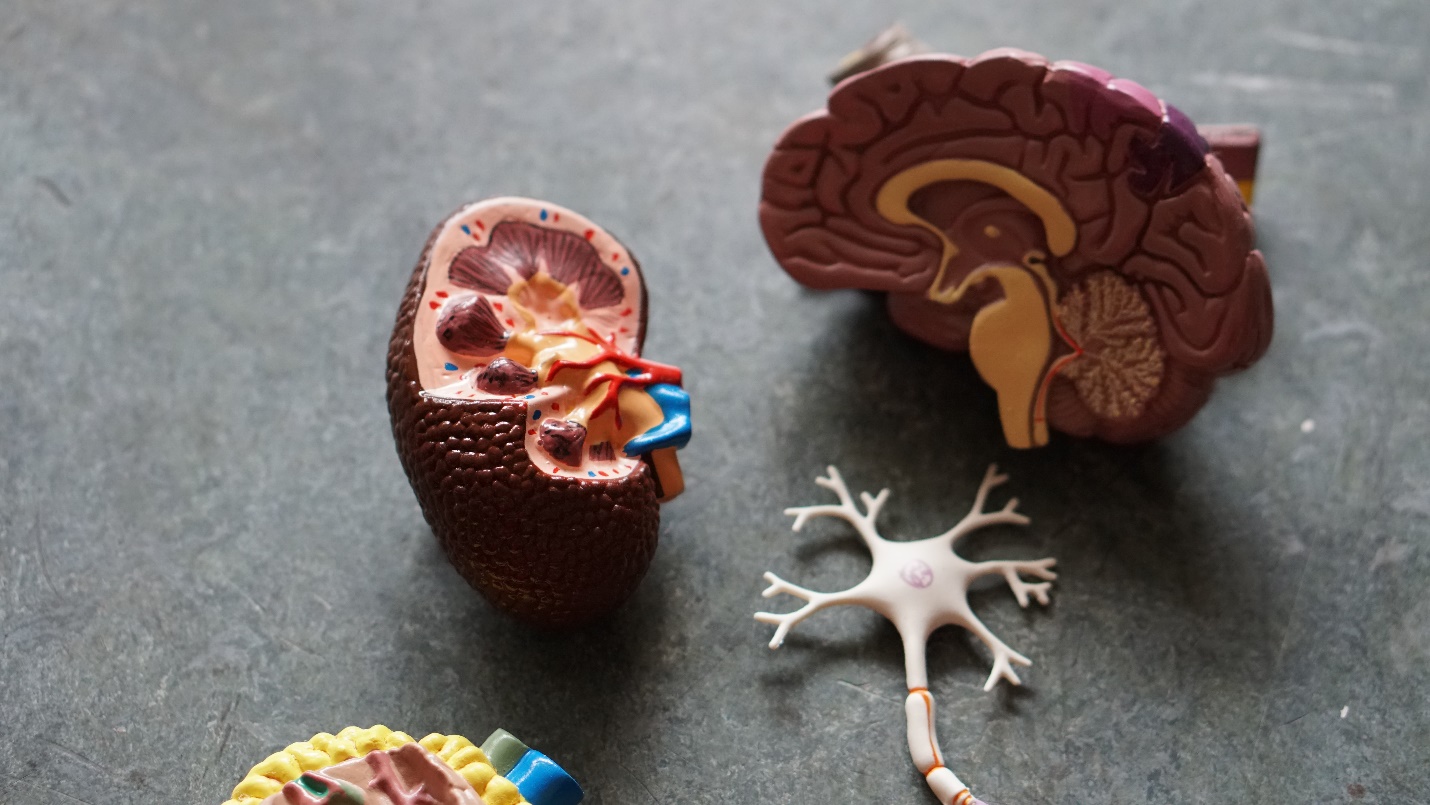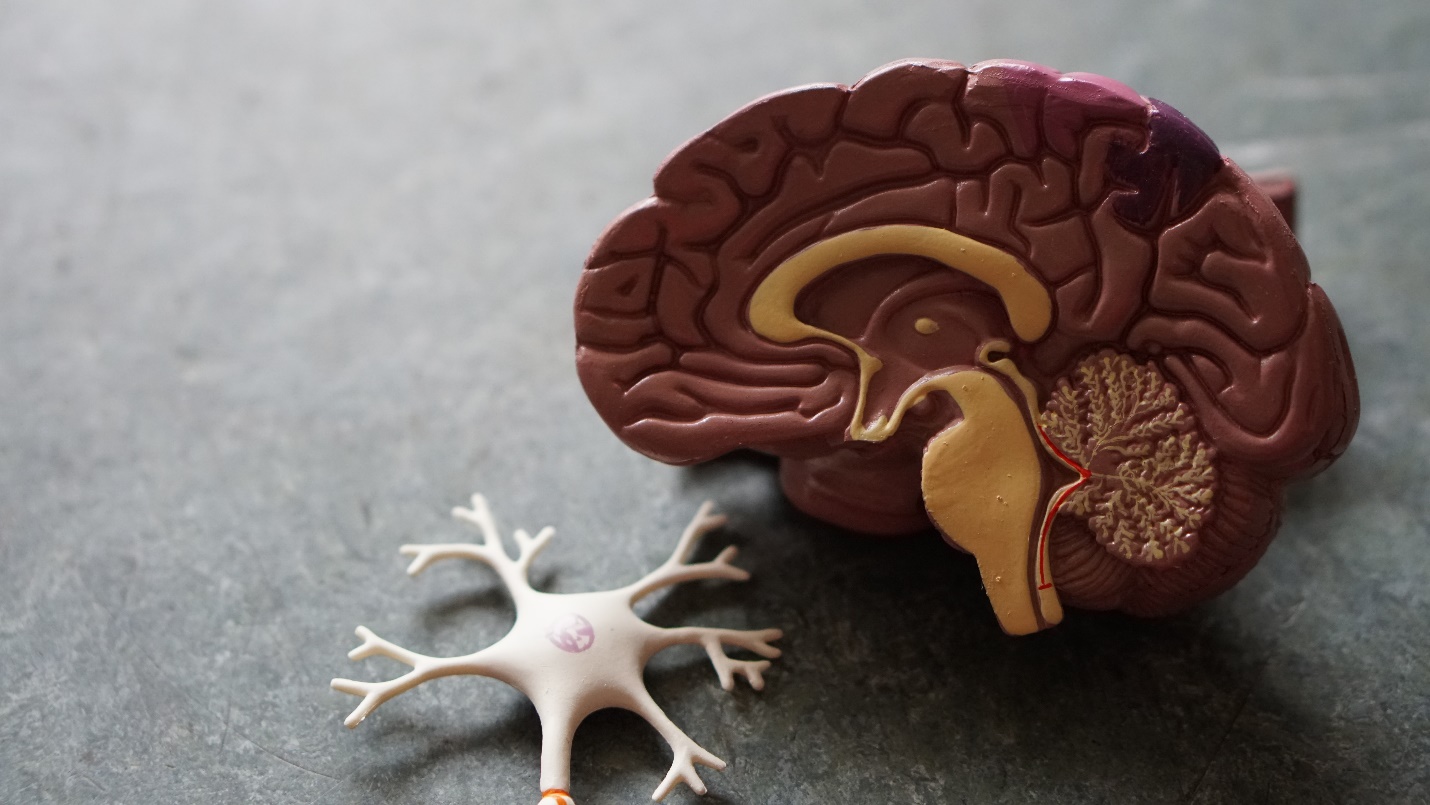We all know that eating too much sugar can lead to health problems including obesity and diabetes, but sometimes it can be hard to recognize the signs. Sugar is found in many different foods, so it can be difficult to know how much you’re eating. Here are 50 signs that you may be consuming too much sugar!
Premature Aging
 If your diet consists of a high amount of sugar, then you will also notice your skin start aging prematurely. So, how does this work? When passing through the bloodstream, an excessive amount of sugar will come into contact with proteins within your bloodstream. This contact will then cause a reaction, thus creating advanced glycation end products. These will then negatively affect your body’s elastin supply as well as the ability to produce collagen. In fact, according to a study conducted in 2014, which the American Journal of Public Health published, sugar causes as much premature aging as smoking does.
If your diet consists of a high amount of sugar, then you will also notice your skin start aging prematurely. So, how does this work? When passing through the bloodstream, an excessive amount of sugar will come into contact with proteins within your bloodstream. This contact will then cause a reaction, thus creating advanced glycation end products. These will then negatively affect your body’s elastin supply as well as the ability to produce collagen. In fact, according to a study conducted in 2014, which the American Journal of Public Health published, sugar causes as much premature aging as smoking does.
Inflammation in the Body
 Another sign that you are eating too much sugar is if you start noticing symptoms of inflammation within your body. Inflammation is something that should be taken lightly. This is because, according to Silvia Carli, who is a registered dietitian, inflammation has the ability to cause damage to your arteries and blood vessels, which could even lead to heart diseases. If you are experiencing conditions, such as fibromyalgia and psoriasis, this too could be caused by eating too much sugar. Research indicates that the daily intake of 1 to 2 cans of soda, which contains sugar, caused an increase in inflammation.
Another sign that you are eating too much sugar is if you start noticing symptoms of inflammation within your body. Inflammation is something that should be taken lightly. This is because, according to Silvia Carli, who is a registered dietitian, inflammation has the ability to cause damage to your arteries and blood vessels, which could even lead to heart diseases. If you are experiencing conditions, such as fibromyalgia and psoriasis, this too could be caused by eating too much sugar. Research indicates that the daily intake of 1 to 2 cans of soda, which contains sugar, caused an increase in inflammation.
Constant Cravings for Food
 If you have an excessive amount of sugar regularly, your body will begin to start craving food constantly. This is because of the fact that when you eat sugar, insulin will be released by your pancreas. However, this reaction only happens temporarily, which is why your insulin levels will fall only after a few hours. This will cause you to feel hungry again, making you crave food constantly. According to a certified doctor in obesity and internal medicine and a clinical researcher on matters involving obesity, Dr. Rameck, you will want food that contains sugar and carbs that transform into sugar more and more. The cycle will then repeat itself.
If you have an excessive amount of sugar regularly, your body will begin to start craving food constantly. This is because of the fact that when you eat sugar, insulin will be released by your pancreas. However, this reaction only happens temporarily, which is why your insulin levels will fall only after a few hours. This will cause you to feel hungry again, making you crave food constantly. According to a certified doctor in obesity and internal medicine and a clinical researcher on matters involving obesity, Dr. Rameck, you will want food that contains sugar and carbs that transform into sugar more and more. The cycle will then repeat itself.
Lack of Energy
 Have you started to feel tired, lethargic, or overall low on energy throughout the day? Well then, consider evaluating the amount of sugar you have been consuming within your diet as a lack of energy can be caused due to eating too much sugar. This is because once your body absorbs the sugar, there is a temporary spike of insulin levels within your body, which is then followed by insulin levels dropping lower than normal levels. So, if you have a stable level of blood sugar, your body will also release energy in a stable way. However, if your blood sugar levels keep fluctuating, so will your energy level.
Have you started to feel tired, lethargic, or overall low on energy throughout the day? Well then, consider evaluating the amount of sugar you have been consuming within your diet as a lack of energy can be caused due to eating too much sugar. This is because once your body absorbs the sugar, there is a temporary spike of insulin levels within your body, which is then followed by insulin levels dropping lower than normal levels. So, if you have a stable level of blood sugar, your body will also release energy in a stable way. However, if your blood sugar levels keep fluctuating, so will your energy level.
Unexplained Bloating
 One of the most unappealing side effects that people most often struggle with is unexplained bloating. Well, here is an explanation for it. If you see signs of bloating without any reason, then it’s highly likely that you are consuming an excess amount of sugar in your daily diet. A diet that is high in sugar will lead to a belly that is bloated or bulging. This is because your stomach is full of both good and harmful bacteria. So, when sugar is consumed, the harmful bacteria consumes that sugar, which causes a reaction leading to gas formation. This gas is what causes your belly to bloat, which can even cause pain.
One of the most unappealing side effects that people most often struggle with is unexplained bloating. Well, here is an explanation for it. If you see signs of bloating without any reason, then it’s highly likely that you are consuming an excess amount of sugar in your daily diet. A diet that is high in sugar will lead to a belly that is bloated or bulging. This is because your stomach is full of both good and harmful bacteria. So, when sugar is consumed, the harmful bacteria consumes that sugar, which causes a reaction leading to gas formation. This gas is what causes your belly to bloat, which can even cause pain.
Weakened Immune System
 One of the most adverse effects and painful side effects of consuming too much sugar is the weakening of your immune system. This can be identified by your body catching colds and viruses much more easily than before. Our gut has both good bacteria and harmful bacteria, and it is our job to feed the good bacteria, which consumes foods that have a high nutritional value, such as vegetables. This is important as these good bacteria support the immune system of our body. By consuming foods that are rich in sugar, you are creating an environment within your body, which allows the harmful bacteria and yeast to thrive, which weakens the body’s immunity.
One of the most adverse effects and painful side effects of consuming too much sugar is the weakening of your immune system. This can be identified by your body catching colds and viruses much more easily than before. Our gut has both good bacteria and harmful bacteria, and it is our job to feed the good bacteria, which consumes foods that have a high nutritional value, such as vegetables. This is important as these good bacteria support the immune system of our body. By consuming foods that are rich in sugar, you are creating an environment within your body, which allows the harmful bacteria and yeast to thrive, which weakens the body’s immunity.
Trouble Sleeping
 Once you consume a meal that is high in sugar, your body will experience a temporary boost in energy levels. A sign that you are eating too much sugar before your bedtime is the inability to fall asleep on time. This is quite tricky to detect as you, yourself, could be feeling incredibly tired and sleepy as too much sugar also causes a lack of energy; however, you still might not be able to sleep. According to a study conducted in the year 2019, women who consumed meals that were high in refined sugar and carbohydrates were more susceptible to developing insomnia.
Once you consume a meal that is high in sugar, your body will experience a temporary boost in energy levels. A sign that you are eating too much sugar before your bedtime is the inability to fall asleep on time. This is quite tricky to detect as you, yourself, could be feeling incredibly tired and sleepy as too much sugar also causes a lack of energy; however, you still might not be able to sleep. According to a study conducted in the year 2019, women who consumed meals that were high in refined sugar and carbohydrates were more susceptible to developing insomnia.
Weight Gain
 Contrary to people’s beliefs, weight gain is not a direct cause of consuming sugar. Instead, the way it works is that sugar provides your body with what is known as empty calories. These calories are known as empty as even though you are consuming a high level of calories; your body is not receiving any important nutrition, such as protein, minerals, fiber, vitamins, and more. These important nutrients are what are needed by your body to perform well in terms of health. So, these empty calories, which are of no use to the body, then lead to weight gain when consumed in excess.
Contrary to people’s beliefs, weight gain is not a direct cause of consuming sugar. Instead, the way it works is that sugar provides your body with what is known as empty calories. These calories are known as empty as even though you are consuming a high level of calories; your body is not receiving any important nutrition, such as protein, minerals, fiber, vitamins, and more. These important nutrients are what are needed by your body to perform well in terms of health. So, these empty calories, which are of no use to the body, then lead to weight gain when consumed in excess.
Skin Breakouts
 Another extremely hard side effect of eating too much sugar on a regular basis that a large part of the population struggles with is unexplained acne. Sure, you can find a few acne spots here and there. However, if you are someone who is struggling with persistent acne in the form of breakouts, then it is a big sign that you are consuming meals that are too high in sugar. This is because of the fact that eating too much sugar leads to inflammation issues as well as blood sugar levels spiking. These two conditions lead to skin breakouts, particularly near the chin and mouth area.
Another extremely hard side effect of eating too much sugar on a regular basis that a large part of the population struggles with is unexplained acne. Sure, you can find a few acne spots here and there. However, if you are someone who is struggling with persistent acne in the form of breakouts, then it is a big sign that you are consuming meals that are too high in sugar. This is because of the fact that eating too much sugar leads to inflammation issues as well as blood sugar levels spiking. These two conditions lead to skin breakouts, particularly near the chin and mouth area.
Feeling Anxious
 A lesser-known sign of consuming too much sugar, and one of the most debilitating ones, is anxiety. According to Trista Best, who is a registered dietitian, there are some foods that are known to worsen or even trigger anxiety. One of those food types includes refined carbohydrates, within which you will find extremely high levels of sugar, such as foods found at the convenience store or pastries. These foods trigger anxiety or worsen it as they cause a rapid spike in glucose within our blood leading to an imbalance in our hormones and mood. Too much sugar also causes several other adverse effects, which can cause our stress and anxiety levels to rise even further.
A lesser-known sign of consuming too much sugar, and one of the most debilitating ones, is anxiety. According to Trista Best, who is a registered dietitian, there are some foods that are known to worsen or even trigger anxiety. One of those food types includes refined carbohydrates, within which you will find extremely high levels of sugar, such as foods found at the convenience store or pastries. These foods trigger anxiety or worsen it as they cause a rapid spike in glucose within our blood leading to an imbalance in our hormones and mood. Too much sugar also causes several other adverse effects, which can cause our stress and anxiety levels to rise even further.
Dental Decay
 Eating too much candy can cause your teeth to rot. This is something that every single one of us has heard all throughout our childhood by our parents. Well, it is most definitely true and applies to all meals that are rich in sugar. One of the most common signs that you are eating too much sugar is dental decay. American Dental Association explains that when we consume too much sugar in our daily diets, the sugar our body absorbs becomes food for plaque bacteria, which already exists on our teeth. This bacteria is responsible for the production of acids, which break down the enamel over our teeth, causing them to decay.
Eating too much candy can cause your teeth to rot. This is something that every single one of us has heard all throughout our childhood by our parents. Well, it is most definitely true and applies to all meals that are rich in sugar. One of the most common signs that you are eating too much sugar is dental decay. American Dental Association explains that when we consume too much sugar in our daily diets, the sugar our body absorbs becomes food for plaque bacteria, which already exists on our teeth. This bacteria is responsible for the production of acids, which break down the enamel over our teeth, causing them to decay.
Brain Fog
 It is important that we consume food that has nutrients that not only help our body to function as best it can but also our mind. Although carbohydrates, which also include sugar, are known as fuel for our brain, eating too much can lead to brain fog. So, how does this work? After consuming a meal that is high in sugar, your blood sugar levels will first spike and then completely deflate, which leads to brain fog, preventing you from staying alert and focused throughout the day. Your body will then crave more sugar, which will create a vicious brain fog cycle.
It is important that we consume food that has nutrients that not only help our body to function as best it can but also our mind. Although carbohydrates, which also include sugar, are known as fuel for our brain, eating too much can lead to brain fog. So, how does this work? After consuming a meal that is high in sugar, your blood sugar levels will first spike and then completely deflate, which leads to brain fog, preventing you from staying alert and focused throughout the day. Your body will then crave more sugar, which will create a vicious brain fog cycle.
Digestive Issues
 One of the most irritating signs of you eating too much sugar is experiencing digestive issues. This is also backed by research, which shows that high sugar levels can cause the functionality of your digestive system to become sluggish, which is a direct result of sugar reducing the variety of good bacteria found within your gut. According to Summer Yule, who is a registered dietitian, by eating foods that are rich in sugar regularly, you could be causing a displacement in food that is filling and rich in nutrients. To overcome this, it is important that you consume foods that are rich in fiber, such as oatmeal, nuts, apples, beans, and more.
One of the most irritating signs of you eating too much sugar is experiencing digestive issues. This is also backed by research, which shows that high sugar levels can cause the functionality of your digestive system to become sluggish, which is a direct result of sugar reducing the variety of good bacteria found within your gut. According to Summer Yule, who is a registered dietitian, by eating foods that are rich in sugar regularly, you could be causing a displacement in food that is filling and rich in nutrients. To overcome this, it is important that you consume foods that are rich in fiber, such as oatmeal, nuts, apples, beans, and more.
Constant Hunger
 If you are someone who is experiencing hunger at all times without any reason, that is, the fact that you are eating on a regular basis, then it might be time to reevaluate what it is that you are consuming. This is because one of the constant signs that you are eating too much sugar is the experience of constant hunger even though you had eaten a few hours ago. This is because you are consuming foods rich in sugar, which causes your blood sugar levels to dip below normal after a few hours. This will lead your body to send signals that you need more sugar.
If you are someone who is experiencing hunger at all times without any reason, that is, the fact that you are eating on a regular basis, then it might be time to reevaluate what it is that you are consuming. This is because one of the constant signs that you are eating too much sugar is the experience of constant hunger even though you had eaten a few hours ago. This is because you are consuming foods rich in sugar, which causes your blood sugar levels to dip below normal after a few hours. This will lead your body to send signals that you need more sugar.
Unexplained Joint Pain

One of the most painful signs of eating too much sugar on a regular basis is joint pain, which cannot be explained. There are several studies that have been conducted on the consumption of drinks that are high in sugar. These studies have successfully linked these rich sugar drinks with arthritis. One of those studies specifically found that the regular use of soda which has been sweetened by sugar, makes women more susceptible to rheumatoid arthritis. Sugar is also known to cause inflammation, which could lead to inflammation within your joint area as a direct result of high glucose levels within your blood caused by the excess sugar. You can particularly feel this pain in the ankles.
Difficulty in Losing Weight

If you have been trying different approaches to lose a few pounds but are finding it extremely difficult to lose weight, you should consider if the food you are eating is rich in sugar. This is because eating too much sugar is known to become a hindrance when trying to lose weight. This is because sugar gives our body empty calories, which does not make us feel full; rather, it makes us crave food more. Whereas complex carbohydrates, which are found in vegetables, fruits, nuts, whole grains, fish, and more, are known to keep up feeling full for much longer. So, if you are consuming carbohydrates, evaluate whether they are those that transform into sugar once digested or those that are complex and provide our body with nutrients.
Loss of Muscle Mass

If you have started to lose the gains you worked so hard for in the gym, then it’s time to lay off the sugary drinks and food. This is because eating too much sugar can cause you to lose your built-up muscle mass. This association is backed up by science, where several researchers have successfully found links between muscle loss and regular consumption of sugar. So, how does this work? Once you have consumed an unnecessary amount of sugar that sugar starts to interfere with your ability to convert proteins into muscles. A study published within the Journal of Nutrition posted findings that showed that rats fed with sugary foods turned out to be much leaner and had more fat deposits than those given food, which contained complex carbohydrates.
Higher Blood Pressure

It is a well-established fact known by the masses that salt causes your blood pressure levels to rise, which can cause several harmful effects in the long run. However, what is often overlooked is that sugar has an even worse effect on your blood pressure levels. That is not all; if you are eating too much sugar, you may not have to wait long for the sugar to start negatively affecting your blood pressure, as it can take just a handful of weeks. A study found that for each sweet and sugary drink, you are 8% more likely to develop hypertension.
Lack of Motivation

If you have begun to feel less and less motivated as time goes on for no reason, then we’ve got an explanation for you. It’s the fact that you might be eating too much sugar. This is because of the fact that once you have consumed a meal that is rich in sugar or converts to sugar once digested, you will feel a temporary boost in energy and mood. However, once that sugar leaves your system, your energy levels will drop much farther down than the baseline. This can cause you to feel tired and even cause a mood swing, which can cause you to feel less and less motivated to perform any task for the rest of the day.
Depression

One of the most dangerous signs of eating too much sugar on a regular basis, which can be both mentally and physically debilitating, is depression. So, when we claim that you could be causing health issues by consuming too much sugar, we mean it in both physical and mental terms. Several pieces of research have proven that meals rich in sugar, particularly beverages that are high in sugar, can make cause susceptible to developing depression. This is because inflammation, which is also a sign of high sugar consumption, causes your neurotransmitter pathways to be impaired, which leads to a plunge in dopamine levels.
Changed Taste Buds

When you eat sugary foods on a regular basis your taste buds will eventually change to better enjoy the foods with high sugar content. This means that over time things like broccoli, carrots or grapes may taste bland compared to sweet desserts and candy! The best way to avoid this problem is by limiting your intake of processed foods which have been loaded with added sugars. If you must have something sweet then consider eating fresh fruit or unsweetened baking ingredients which are healthier alternatives that won’t leave an unpleasant aftertaste lingering in your mouth.
You Start Suffering From Diabetes

Diabetes is a very serious health problem that results in high blood sugar levels. To prevent it, you must avoid eating excess amounts of sugar and other simple carbohydrates like white bread or pasta. There are lots of delicious alternatives to sugary foods which you can use as replacements like applesauce, bananas or spinach! Eating healthy is your best bet for avoiding diabetes or any other medical condition that requires strict dietary changes.
Cravings for More Sugar

Consuming too much sugar can cause cravings for more sugar because the sweet taste satiates the brain’s desire to consume additional sugary food items like candy and soda! The best way to avoid this problem is by limiting your intake of processed foods which have been loaded with added sugars. If you must have something sweet then consider eating fresh fruit or unsweetened baking ingredients which are healthier alternatives that won’t leave an unpleasant aftertaste lingering in your mouth.
Teeth Start Getting Yellow

Eating too much sugar can cause teeth to start getting yellow because the bacteria in your mouth feed on the sugar and produce acids that cause the color of teeth to change! To prevent this you should brush your teeth after eating or drinking anything sugary so you can get rid of excess particles stuck on your teeth. If you are unable to brush then consider rinsing with water or chewing gum which help remove sugars from between the gaps in your teeth.
Frequent Mood Swings

Consuming too much sugar can cause frequent mood swings because sugars affect the level of serotonin in our brains which is a chemical that stabilizes mood! If you are having problems with depression or anxiety then consider eliminating sugary foods from your diet and focusing on eating healthier alternatives to feel better in a shorter amount of time.
Feeling of Irritability

Do you have a short temper? If your diet consists of foods high in refined sugars then it is possible that you are experiencing some mood swings on a regular basis! Foods with added sugars can cause an increase of serotonin levels in your bloodstream which can trigger emotional changes. Eating too many sweets can also make you irritable because they are often lacking important nutrients needed to sustain healthy brain function. Next time someone makes you mad try eating some fruit instead of reaching for candy to calm down!
Joint Pain

Consuming too much sugar can cause gout and joint pain because the excess intake of simple carbohydrates raise blood glucose levels which affect the connective tissues that support movement! To avoid this try eating a diet consisting of healthy fats and lean proteins which provide more energy than sugars without causing joint discomfort. If you experience frequent joint pain then try avoiding sugar and other sweet ingredients like honey, molasses and cane sugar.
Fatigue and Tiredness

It might be hard for you to believe that fatigue could cause by something as easily accessible as sugar, but many foods that are high in sugar are lacking other nutrients. These missing nutrients prevent your body from creating energy which you need to function properly! Foods high in added sugars lack amino acids, healthy fats, fiber and other important nutrients needed for good health so the only source of nutrition is the sugar which can leave you tired and low on energy.
Regular Headaches

Many people who cannot function properly throughout the day are unaware that their headaches might actually be caused by sugar! This may come as a surprise, but eating too much sugar can cause you to get tired and sleep. When the brain is deprived of glucose it produces feelings similar to hunger which often result in headaches. If you think your headache might be related to something you ate, skip the painkillers and try some oranges instead!
Feel Drowsiness

Did you know that drowsy driving causes twice as many fatal car accidents than any other form of distracted driving? These accidents happen because excess blood sugar levels lead to poor alertness and reaction times – even if you feel like you have been awake for hours. Foods with added sugars tend to disrupt the chemicals needed for proper brain function which can result in drowsiness or difficulty staying alert.
Struggling To Lose Weight

Eating too much sugar can not only cause weight gain but it can also make it difficult for you to lose weight because it raises insulin which stores excess calories as fat! To avoid this try eating a diet consisting mostly of healthy fats instead of sugars to burn fat for energy. When you do have an indulgence then make sure to not exceed the 30g carbohydrate limit per serving. Eating small amounts is key to enjoying your favorite foods without gaining weight.
Your Wounds Heal Slowly

Eating too much sugar can cause slow wound healing because it increases the stickiness of platelets which reduces blood flow to wounds thus delaying the healing process! To avoid this try focusing on eating lots of healthy fats like avocado, olive oil and flax seeds. You should also eat lean proteins so you can recover quickly without any dietary setbacks.
Frequent Ear Infections

Sugar worsens ear infections because air carries bacteria from your mouth through your Eustachian tubes during chewing and swallowing motions that spread them to your inner ears when consumed in excess! If you are prone to frequent ear infections then try limiting sugary snacks to only once per week or less if possible. Try buying chewable vitamins that contain natural sweeteners instead to make it easier to consume less sugar.
High Cholesterol Levels

Eating too much sugar can increase your blood cholesterol levels because sugars are directly converted into fat in the body when consumed! This increases our LDL (bad) cholesterol while also decreasing HDL (good) cholesterol which both lead to higher risk of heart disease. If you want to prevent high cholesterol then try reducing your carbohydrate intake, especially foods with added sugars or syrups like sodas and candy bars.
You Feel Crashed Out After a Workout

Do you ever feel crashed out after a short workout session? Ever wondered why that happens? Well, most people don’t know this but this can be due to high consumption of sugar. We have already mentioned that high consumptions of sugar can cause fatigue. This can lead to laziness and tiredness. Lower your sugar consumption and see the difference in your workout routine.
You Have Difficulty Maintaining an Erection

This is another sign of high consumption of sugar that most men fail to realize. Not performing in bed can be a big problem in a relationship. You might have tried everything but still fail to get a proper erection. Well, sometimes it’s the high levels of sugar in your blood that stop it from happening. The sugar weakens the arteries and covers places that should actually be covered by essential nutrients. This is why it becomes difficult for men (who consume high percentage of sugar) to get an erection.
You Feel Your Heart Isn’t As Healthy As It Used To Be

Sugar can cause us to feel our hearts aren’t as healthy as they used to be because it releases free radicals that damage blood vessels and cause plaque buildup! To avoid this try consuming less sugar overall, but specifically focus on avoiding soft drinks and fruit juices. Try using natural sweeteners instead so your intake is more obvious and easier to track for a healthier heart overall. Your heart beat is also effected by high consumption of sugar.
Your Liver Is Enlarged

Fatty liver disease is an increasing problem affecting many Americans today. This disease results from the accumulation of fat in liver cells which leads to a variety of health issues. The American Liver Foundation reported that the primary cause of fatty liver disease is not alcohol consumption but rather obesity and diabetes brought on by excessive refined sugar intake.
You Are Suffering From Kidney Problems

Eating too much sugar is linked to kidney problems because it can increase bad cholesterol levels that block blood vessels in the kidneys! It is also responsible for kidney stones. If you want to avoid kidney problems then try limiting sugar intake, especially soda and fruit juices that are full of added sugars. Instead focus on eating consuming healthy fats.
Cognitive Decline: Losing Focus

Do you find yourself getting distracted easily? Your inability to concentrate could be caused by an overload of sugar in your diet! Excess amounts of carbohydrates can cause dips in blood glucose levels which results in changes to mental focus. The brain needs a regular supply of glycogen to function properly – when this process is disrupted it to concentration problems! Keeping blood glucose levels stable with the appropriate amounts of protein, fiber and healthy fats can help prevent this.
Gum Diseases

Eating too much sugar leads to gum disease because it encourages the growth of plaque causing bacteria in our mouth which leads to inflammation and tooth decay! To avoid this try avoiding sugary snacks like cakes, candy bars and cookies. High consumption of sugar can also badly effect your teeth as well. So if you want to protect your dental health then you need to go easy on the sugary foods.
Increased Levels of Stress

Eating too much sugar can cause increased levels of stress because it increases our cortisol levels which affects mood! To avoid this try eating a diet consisting mostly of protein-rich foods like lean meats, vegetables and fruits. Also try to eat a lot of healthy fats in place of sugar to help maintain stable blood glucose levels so you don’t get stressed out by the time!
Your Body Isn’t Getting the Nutrients It Needs

High consumption of sugar can block your body from getting the right amount of nutrients because sugars take the place of the nutrients. To avoid this, never consume more than 3 to 4 teaspoons of sugar a day and try going easy on protein-rich foods while focusing on eating lots of fiber-rich foods. This will not only make you weak but it will also affect the functionality of your body.
Your Body Has Low Protein Levels

Eating too much sugar can cause low protein levels because it causes your kidneys to excrete the vital nutrient! To avoid this never consume more than 6 teaspoons of table sugar per day, but also try going easy on protein-rich foods as well. Just because you feel your body has low protein levels does not mean that you have to suddenly try to consume large amounts of protein altogether.
Lose Your Morning Appetite

You know they say that the breakfast is the most important meal of the day. However if you are someone who regularly consumes high amount of sugar then it can cause you to lose your morning appetite especially if you ate something sugary at night and then went to sleep without working out. When you don’t try to burn the carbs then the sugar content stays in your body and takes a long time to digest; which is why you may not feel hungry in the morning.
Acute Pancreatitis

Many people enjoy a good sweet treat now and again. However, a study suggests that high intakes of sugar can lead to acute pancreatitis, an inflammation of the pancreas which is often caused by gallstones or excessive alcohol use. Pancreatitis occurs when the organ upsets due to digestive enzymes being activated without control and causing damage to tissue. Often there is no precise cause for this condition, but certain individuals may be at greater risk from developing it, including those with alcoholism or chronic alcoholism, infected pancreatic stones or cysts, trauma or surgery on the pancreas or hypertriglyceridemia (high blood levels of triglycerides) and people who consume high amounts of sugar.
Alzheimer’s disease

It seems that yet again, the role of nutrition in Alzheimer’s disease has been confirmed. Several researchers reported that they have found evidence that sugar can contribute to developing Alzheimer’s disease. So if you are facing early symptoms of Alzheimer’s disease then it is ideal to cut down on the amount of sugar you eat every day. It is better to start taking steps when the symptoms are in the early stage so the disease can be controlled and the first step in controlling Alzheimer disease is to cut down your consumption of sugar. It may not be easy, but it will be worth it.
Your Body Is Resistant To Insulin

Scientists believe that high glucose levels cause cells to lose their sensitivity to insulin – which itself makes blood glucose levels rise even more. Over time, if we’re consuming lots of carbohydrates each day (and especially those containing sugars and starches) the resistance increases until we need an enormous amount of insulin just for our cell to sense the glucose and absorb it. And since elevated blood sugar levels damage nerve fibers and blood vessels, we might expect many other negative consequences as well.
The good news is that we can reverse this process by choosing a diet very low in carbohydrates (below 60 grams/day, depending on your weight and activity). By curbing your carbohydrate intake you reduce the amount of insulin required to maintain normal blood sugar levels – and at the same time you lose excess water from inside cells because insulin blocks kidneys from excreting urine. Suddenly those effects of high-carbohydrate diets start reversing themselves.
Your Organs Are Taking a Hit

High consumption of sugar can have a lot of negative effects on the body. One of the most important reasons that you should cut down your sugar intake is that it can effect each and every organ in your body. If you feel that you are facing problems with you liver, kidneys, heart, pancreas, stomach, your skin or any other organ then it can be due to sugar. Sugar is like a hidden culprit that is seldom blamed for all these issues even though it is either the reason for these issues or it acts as a boosters for other factors causing these issues.
Excessive Thirst and Frequent Urination

High consumption of sugar can cause excessive thirst and frequent urination. High levels of fructose found in most processed foods are one of the leading causes for diabetes. Fructose is a type of sugar which is normally produced by the human liver when glucose levels are exceptionally high. Research has shown that more often than not, glucose levels are unusually elevated in people with diabetes, thus causing their livers to create excess fructose in order to maintain equilibrium. This phenomenon proves that there may be a connection between consuming too much sugar and developing diabetes. One of the major symptoms of diabetes is excessive urination. People naturally turn to water or other non-caloric beverages when thirsty to quench their thirst and take in fluids. However, drinking soda, iced tea, lemonade and other drinks high in sugar will only worsen the thirstiness. You might be able to quench your thirst for the time being but you will feel thirstier later in the day. Which means that you will have to consume more water or other beverage. Furthermore, most people do not realize that they are already dehydrated because soda and other sugary beverages do not relieve thirst as effectively as pure water does.

